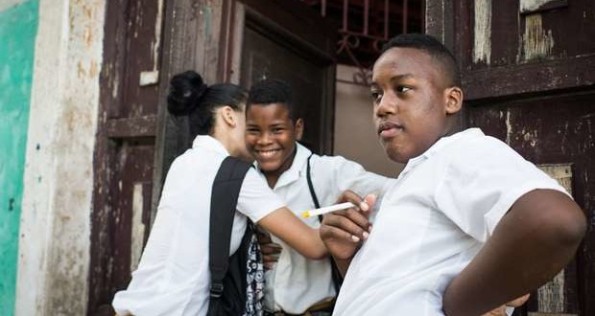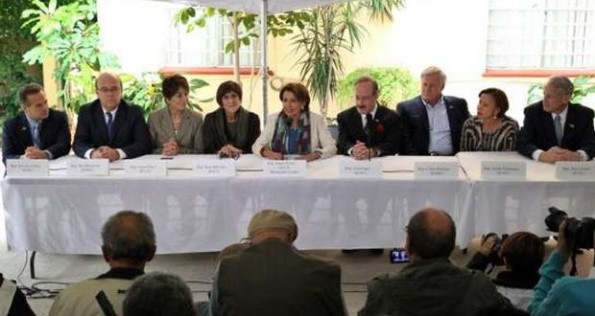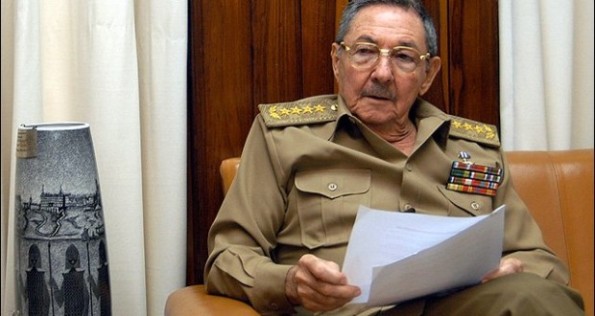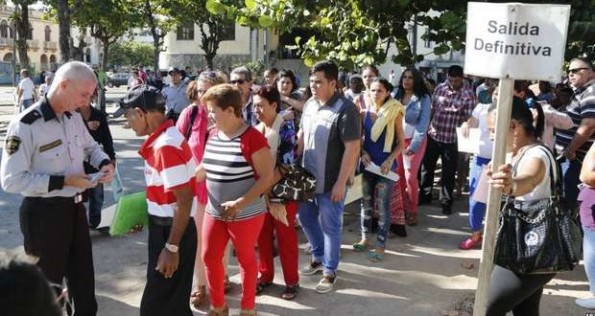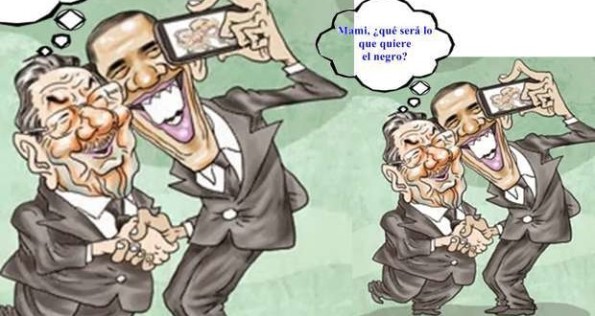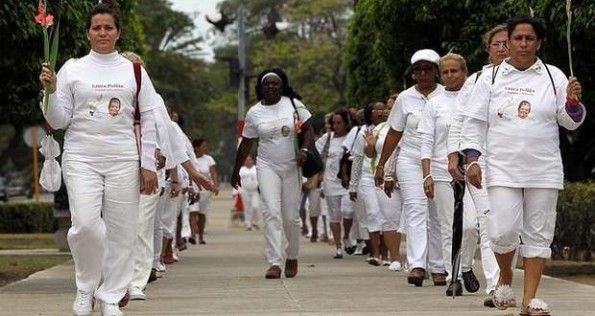 Ivan Garcia, 11 March 2015 — During the hot summer of 2013 I remember Blanca Reyes, wife of the poet and journalist Raul Rivero, writing letters to the pope in the Vatican, to the Mothers of the Plaza de Mayo in Argentina and to Nelson Mandela in South Africa, reminding them that Fidel Castro had sentenced Rivero to twenty years behind bars for writing without approval.
Ivan Garcia, 11 March 2015 — During the hot summer of 2013 I remember Blanca Reyes, wife of the poet and journalist Raul Rivero, writing letters to the pope in the Vatican, to the Mothers of the Plaza de Mayo in Argentina and to Nelson Mandela in South Africa, reminding them that Fidel Castro had sentenced Rivero to twenty years behind bars for writing without approval.
Reyes was speaking on behalf her husband and seventy-four other prisoners of conscience detained in March 2003. I saw up close the suffering of these women. At mid-morning, armed with baskets of food and toiletries, they traveled hundreds of kilometers to visit their husbands, fathers, sons and brothers in jail.
They were also prisoners of the system. Later they decided to organize. They were like a clan. Laura Pollán was a natural leader who began acting as the spokesperson for the group.
Never before in the history of Cuba’s peaceful dissident movement has there been an organization with as much international reach as the Ladies in White. They have compelling reasons for marching gladiolas in hand, demanding freedom for their loved ones.
They were subjected to physical assaults, humiliations and verbal abuse by paramilitaries. Their symbolism and courage were key considerations in leading the Castro regime to ask the Catholic church to act as intermediary with the women after the death of Orlando Zapata in prison from a hunger strike.
With participation of Cuba’s Cardinal Jaime Ortega and Spain’s Chancellor Miguel Ángel Moratinos the Ladies in White forced the government to negotiate the release of prisoners arrested during the 2003 crackdown on dissidents known as the Black Spring.
They wrangled another concession from the regime: the right to march on Sundays through an area of Fifth Avenue in Havana’s Miramar district. But with most of the prisoners of conscience having gone into exile, the time has come for the Ladies in White to refocus and reorganize themselves.
There are several options available. One would be to form a political party and focus their efforts on addressing other issues. In today’s society it is not only those who are imprisoned for criticizing the regime who suffer. Prostitution and violence in general have increased.
In Cuba working women are paid poverty-level wages. They, like housewives, have to struggle daily just to survive, especially when it comes to looking for food. Besides handling domestic chores and seeing to their children’s education, they must also care for elderly and sick parents and relatives.
The Ladies in White might become an advocacy organization for Cuban women by trying to address the many problems they have today.
Their current platform includes a demand for democracy and freedom for so-called prisoners of conscience. This is something that should be better defined since it is not at all clear whether a former counter-intelligence official and someone who hijacks a boat belong in the same category. Nevertheless, there are already groups within the dissident movement who fulfill this function.
What is lacking are organizations which can serve as voices of the community. Dilapidated and dark streets, poor public transportation, water and food shortages, low salaries, and health care and educational systems in free fall affect both supporters and critics of the regime.
These are areas in which the Ladies in White might focus their efforts. In the regime’s farsical elections scheduled April 19 to select municipal and neighborhood delegates, the Ladies in White could encourage citizens to vote blank ballots.
Under the current election law any citizen can monitor the vote count. The day that the number of citizens voting blank ballots reaches a high percentage is the day that we have the potential to gain real power to foster change.
These days the dissident movement is all smoke and mirrors. It is more media-savvy than effective. It cannot expect to play a role in future negotiations if it is not capable of mobilizing people in the thousands. Given their ability to organize, the ideal situation would be for the Ladies in White to concentrate their efforts in neighborhoods.
I do not believe focusing on conversations between Cuba and the United States is the right strategy. Political lobbying should left to those dissidents who are better prepared.
Berta Soler is a woman to be reckoned with. She is not, however, comfortable in front of a microphone. Engaging in politics, travelling overseas and riding the information wave are more rewarding.
But what is needed on the island are boots on the ground working at the grassroots level. Raising awareness of issues among the large silent majority of non-conformists who prefer to sit on the sidelines is what is required. This is something the Ladies in White and other dissident organizations could do.
The row between Berta Soler and Alejandrina García was badly handled.* Using an act of repudiation to undercut García was unfortunate. I applaud Soler’s decision to hold internal elections within the group.
It is a healthy practice and the rest of the dissident movement should take note. If they want credibility, the political opposition should adopt bylaws and practice transparency.
Most conflicts within the Cuban opposition are results of nepotism, trafficking in favors and corruption. There are opposition leaders who talk like democrats but who act quite differently. Meanwhile, their followers often serve as a chorus of extras whose only purpose is to provide applause and adulation.
The genesis of the Damas de Blanco was collectivism and authenticity. Without a strategic change course, the movement — founded twelve years ago — may simply peter out. That would be a shame.
*Translator’s note: A video from December 16 was released showing a group of Ladies in White surrounding Garcia, a founder of the organization, and shouting “down with traitors” at the movement’s headquarters. As a result, sixteen exiled founders of the movement signed a letter asking Soler to resign and hold elections to give the group a new direction. They called the incident “an abominable act of repudiation” and described it as a “communist” and “fascist” reaction. Source: Miami Herald

